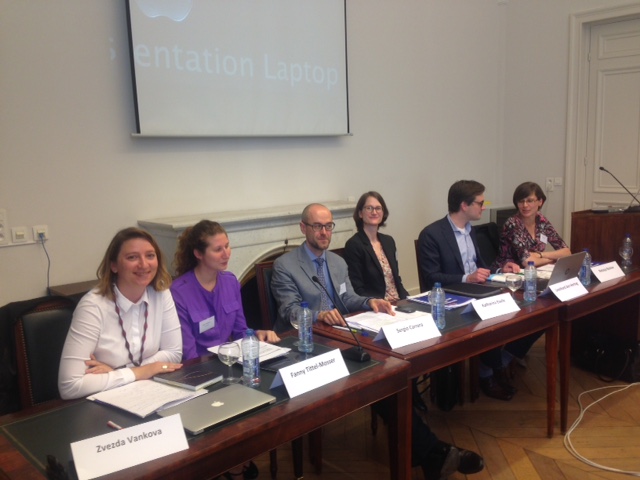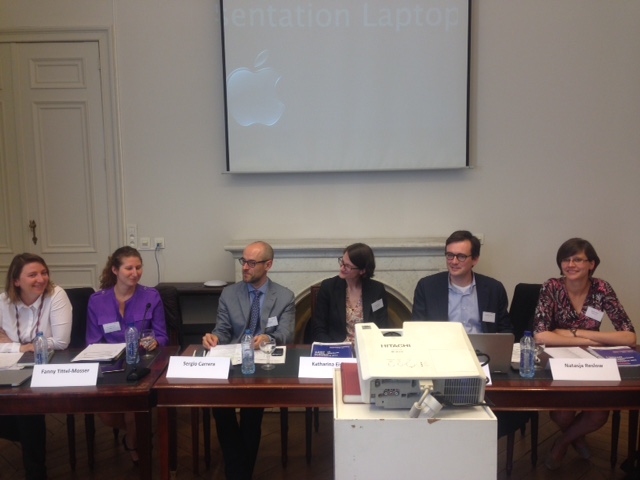TRANSMIC panel at the EUIA V conference in Brussels
May 23rd, 2016 by Niels
The fifth edition of the ‘European Union in International Affairs’ (EUIA) Conference took place in Brussels from Wednesday 11 May to Friday 13 May 2016. The conference was organised by the Institute for European Studies at the Vrije Universiteit Brussel, the Institut d’Études Européennes at the Université Libre de Bruxelles, the United Nations University Comparative Regional Integration Studies and Egmont – the Royal Institute for International Relations biannually. This biannual forum gathers international studies scholars and policy practitioners to debate the role of the EU in the realm of international affairs. For the first time ‘(Im)migration and diversity’ was among the themes of the EUIA conference with panels addressing the EU and international organisations’ roles in the global governance of immigration and diversities, as well as the interaction between governance levels, from local to global.
Seizing this new academic opportunity, the Centre for European Policy Studies (CEPS) organised a conference panel bringing together three TRANSMIC fellows to present their research. The panel “Concepts and instruments in EU’s external migration policy” was chaired by Dr. Sergio Carrera of the CEPS and Maastricht University, who is also a PhD and postdoc supervisor within the TRANSMIC network. The panel consisted of Leonhard den Hertog (CEPS, Maastricht University) presenting a case study on the funding for the EU-Morocco Mobility Partnership, Fanny Tittel-Mosser (University of Minho) speaking about the legal effects of the implementation of Mobility Partnerships, and Zvezda Vankova (Maastricht University) presenting the concept of circular migration and its implementation in the context of the Eastern Partnership. In addition, a colleague from the Maastricht University, Dr. Natasja Reslow, presented her paper assessing whether the Mobility Partnerships have achieved their stated objectives.
The four panellists provided an excellent overview of the major concepts that underpin the EU’s external migration policy dimension, such as circular migration, mobility, soft law, legal competences and coherence. They provoked a lively discussion with the audience focusing on the issues related to the implementation of the Mobility Partnerships – their contested legal effects and policy outcomes, their limited impact on labour mobility and their funding, that reveals the EU institutional, political and legal struggles in its external migration policy. Dr. Katharina Eisele from the European Parliamentary Research Service served as the discussant of the panel and provided valuable feedback to the TRANSMIC fellows, who presented some of their interim research results.




